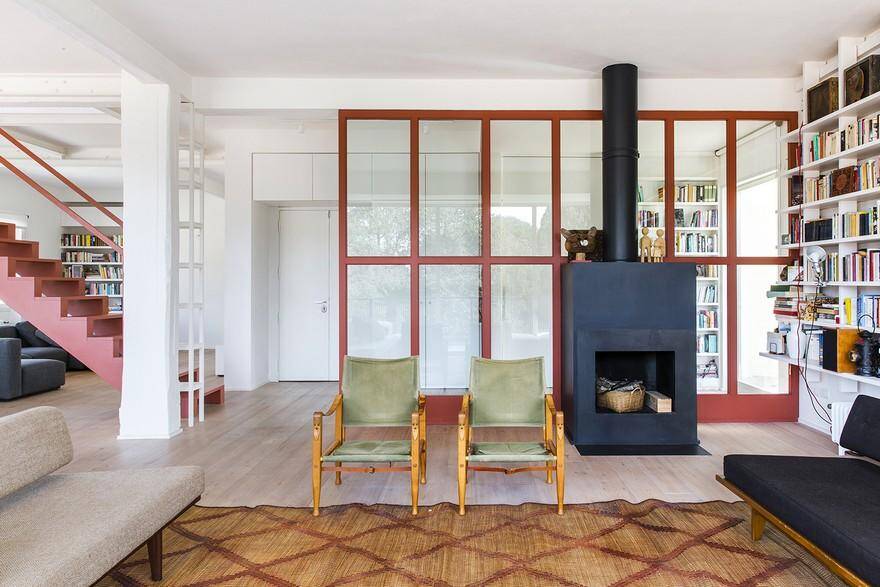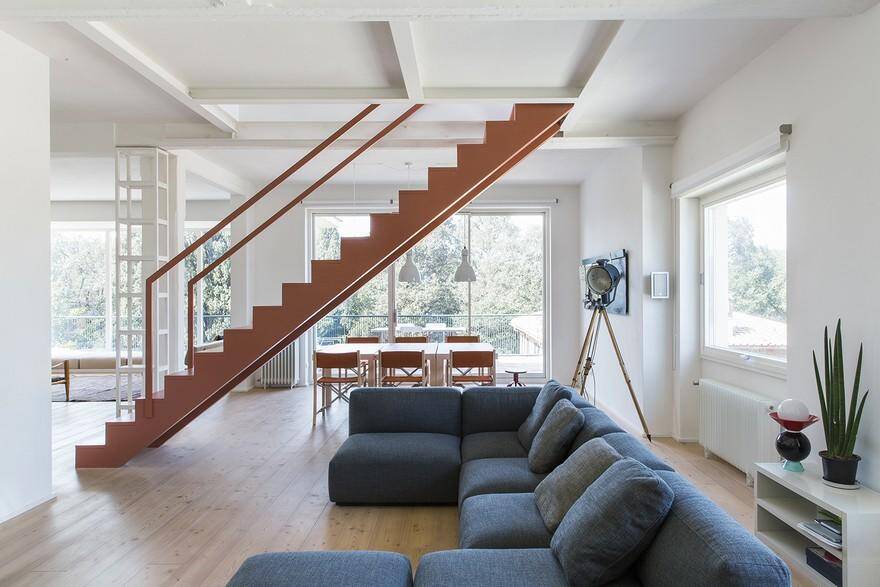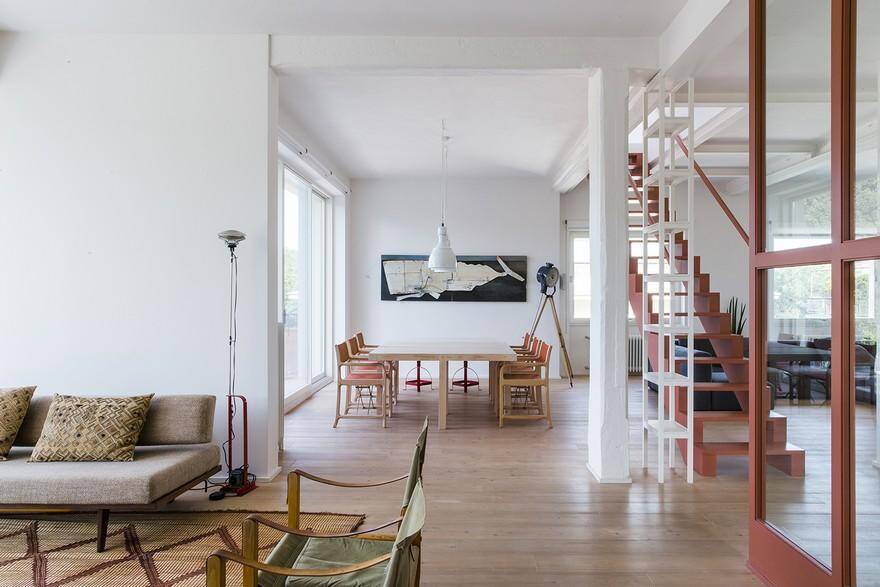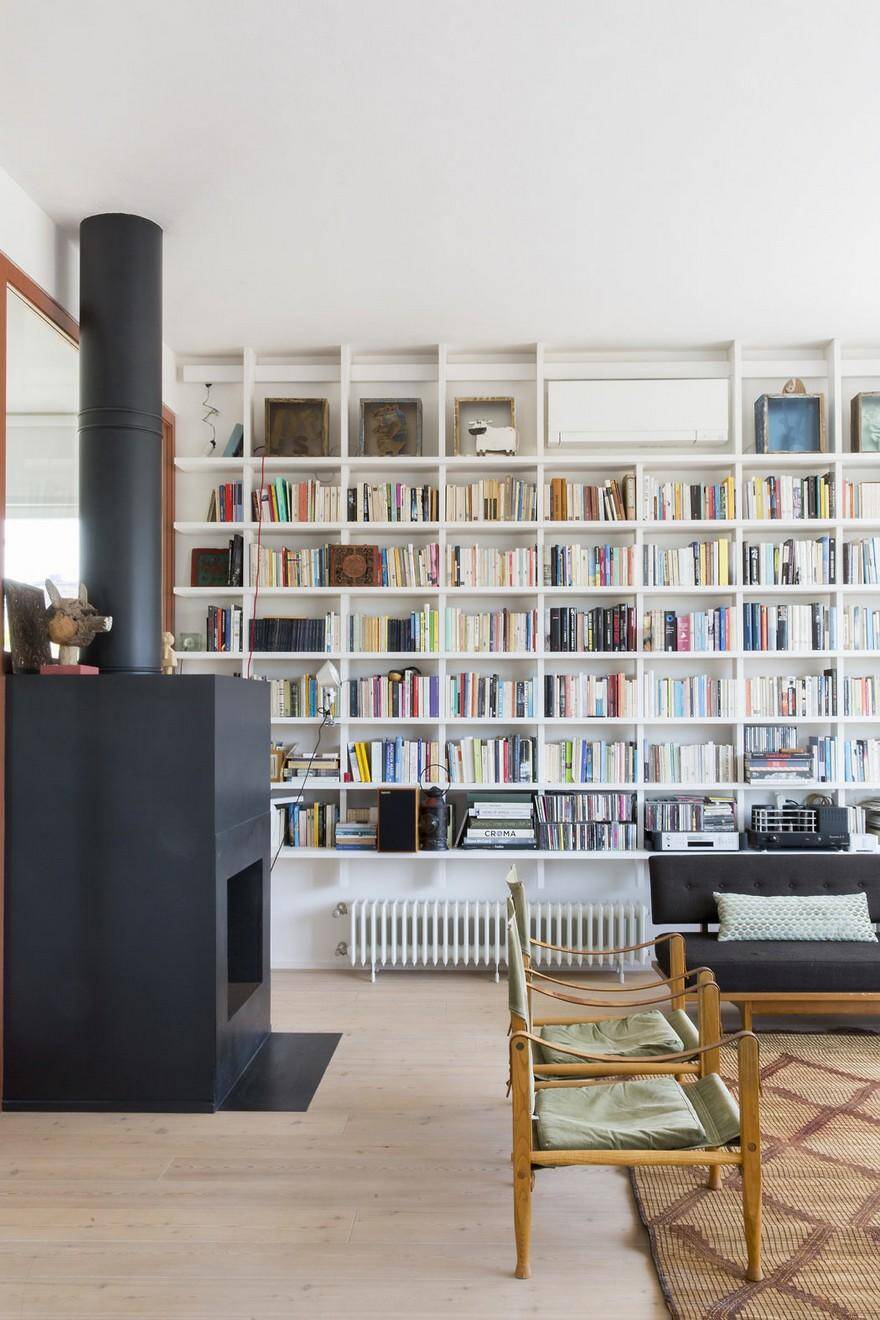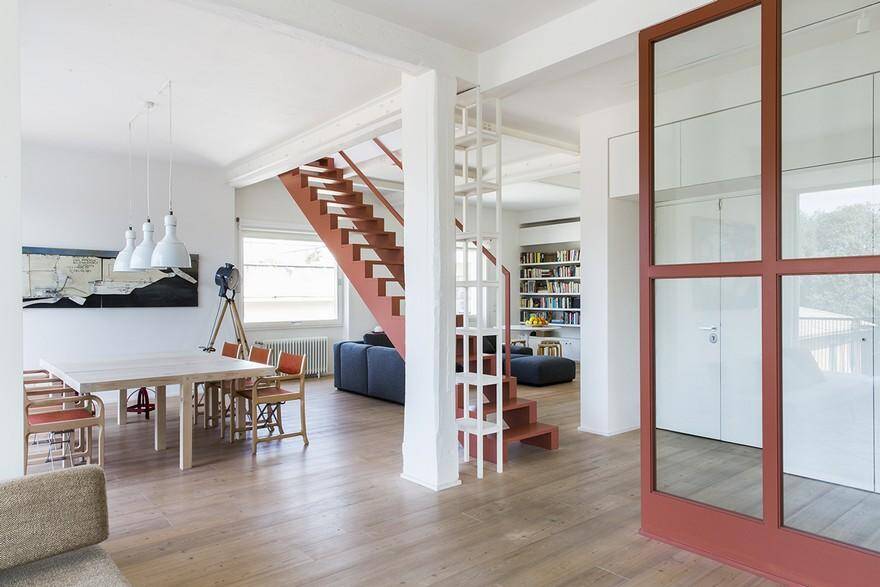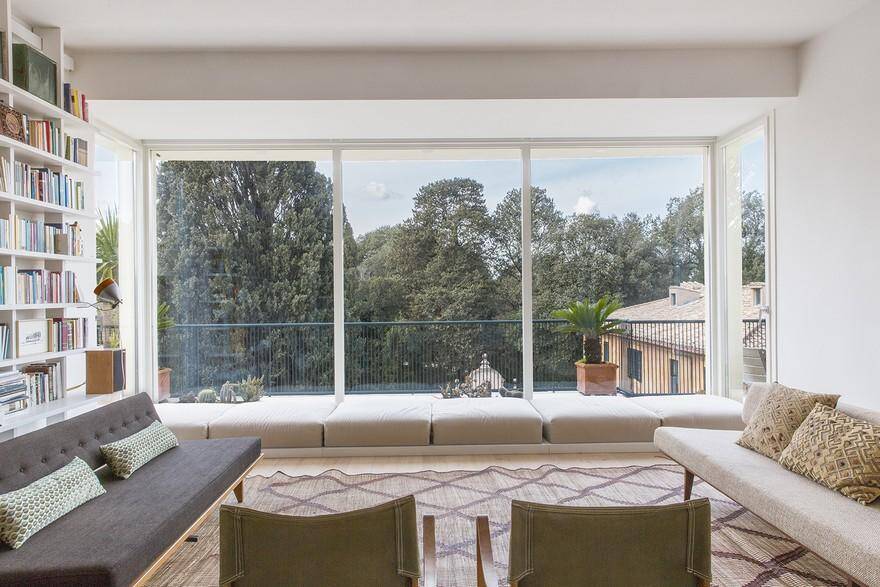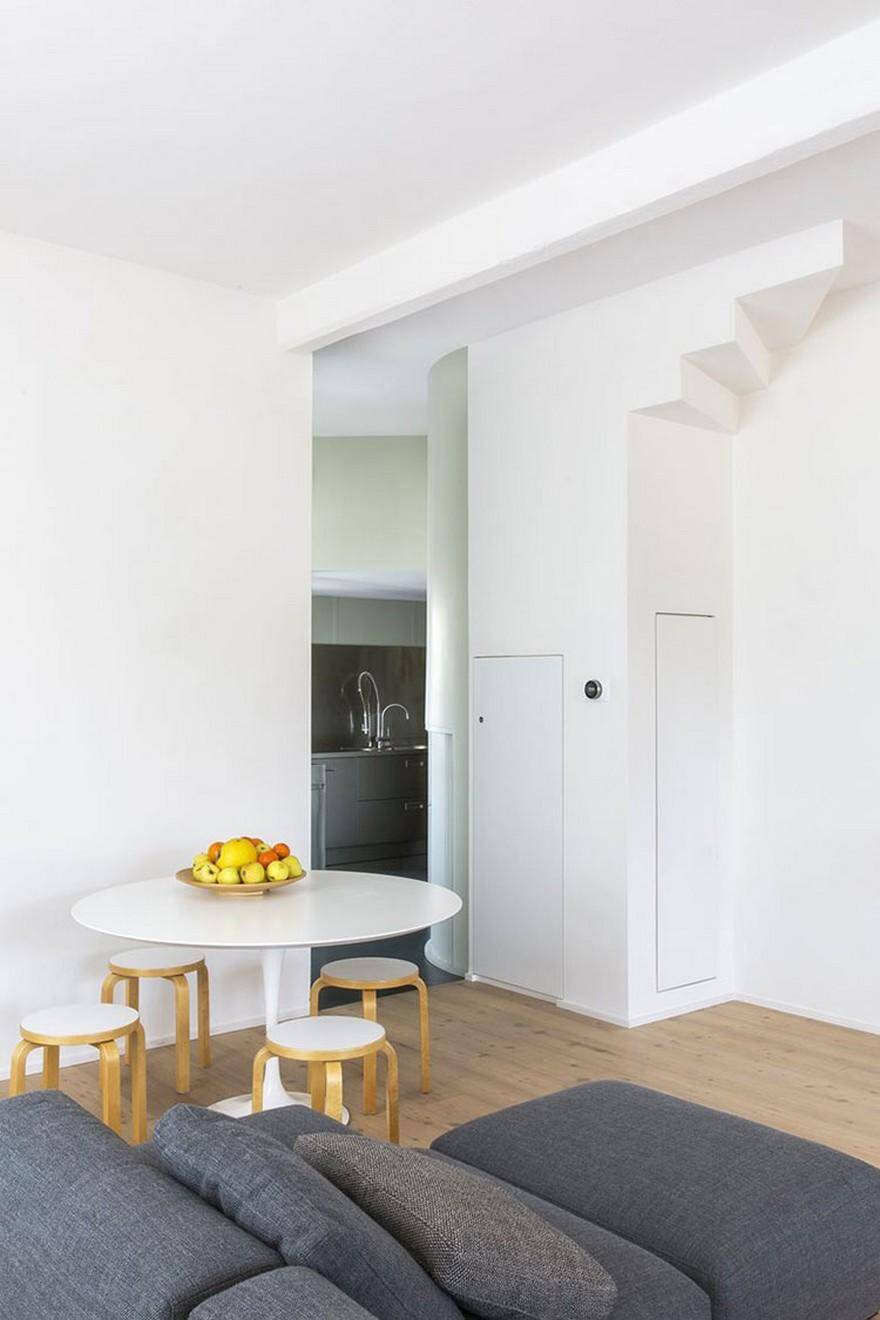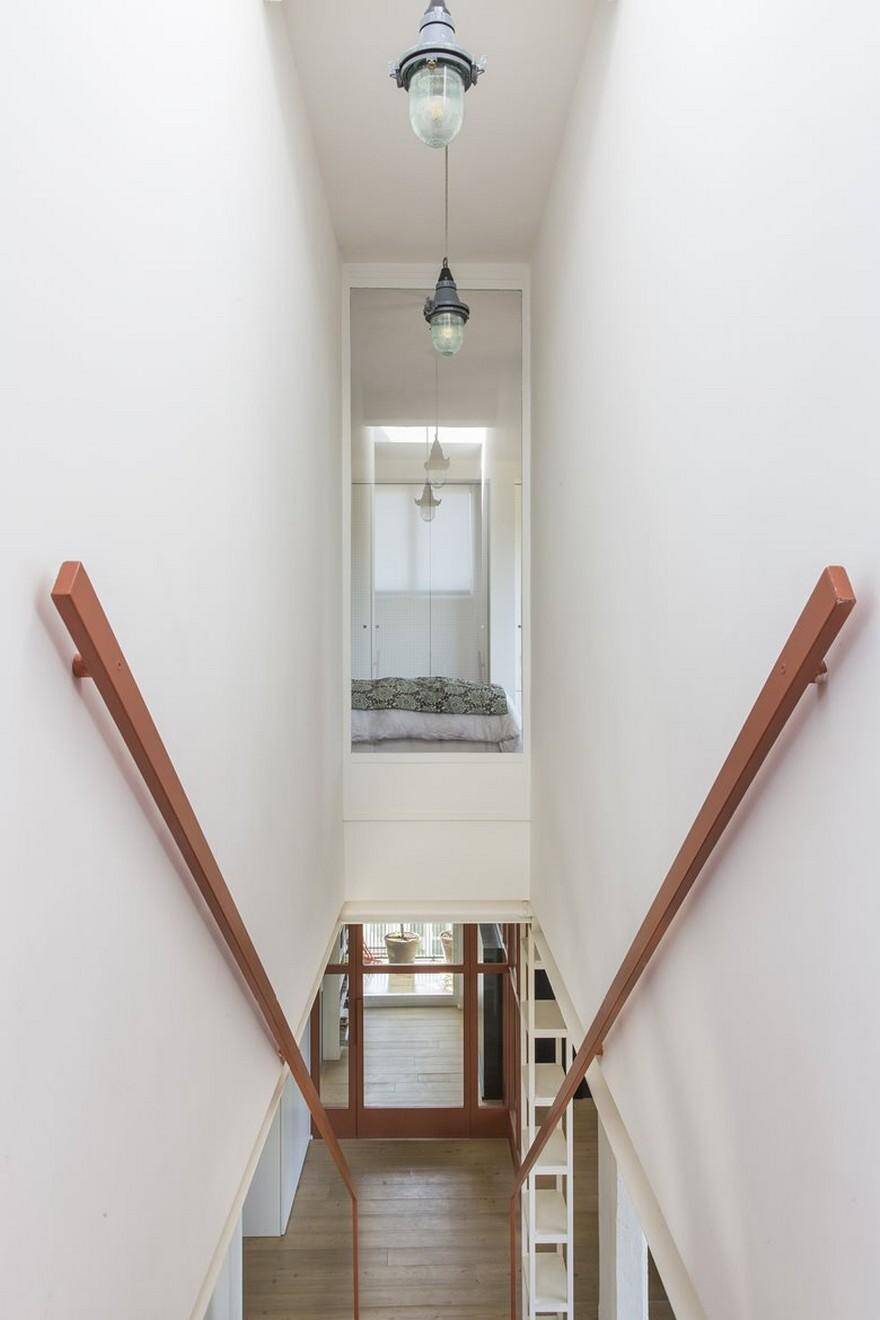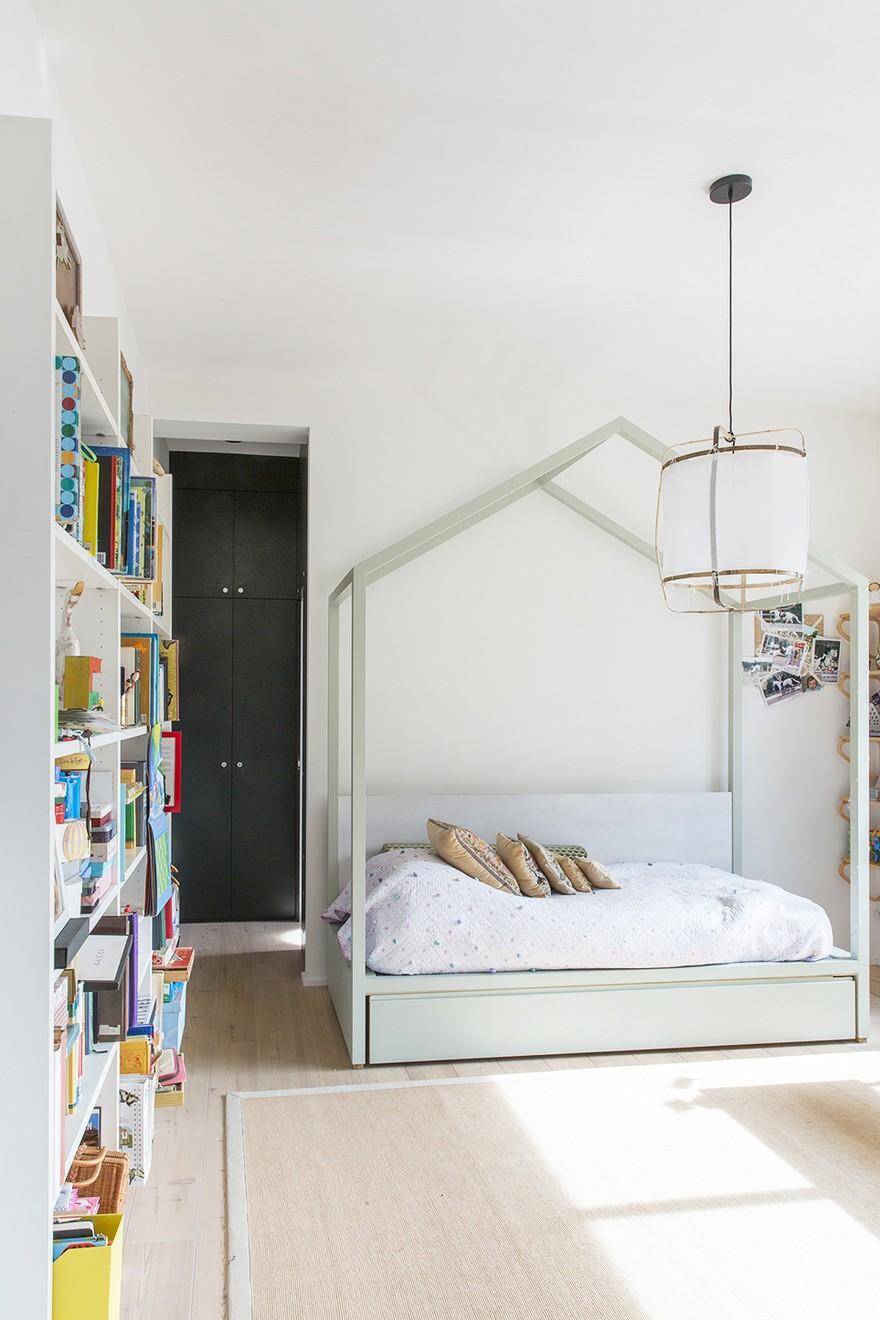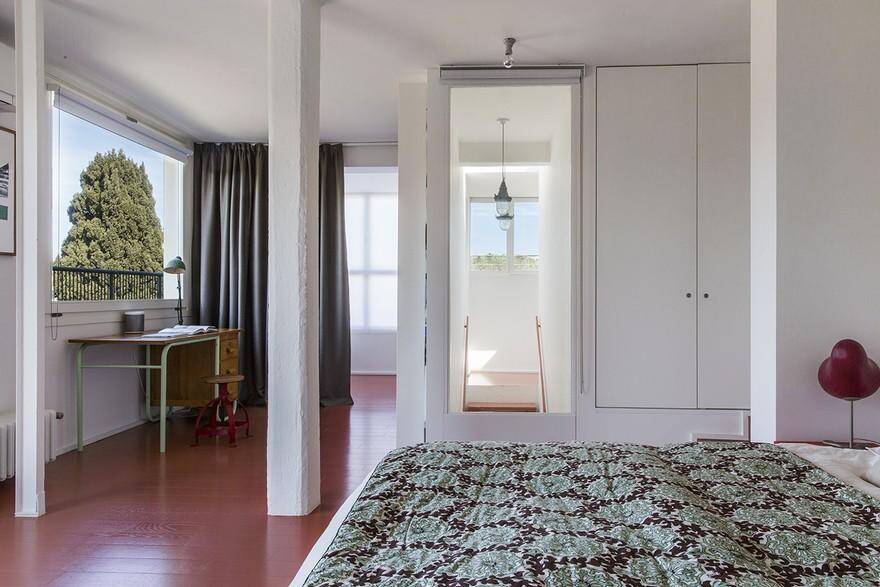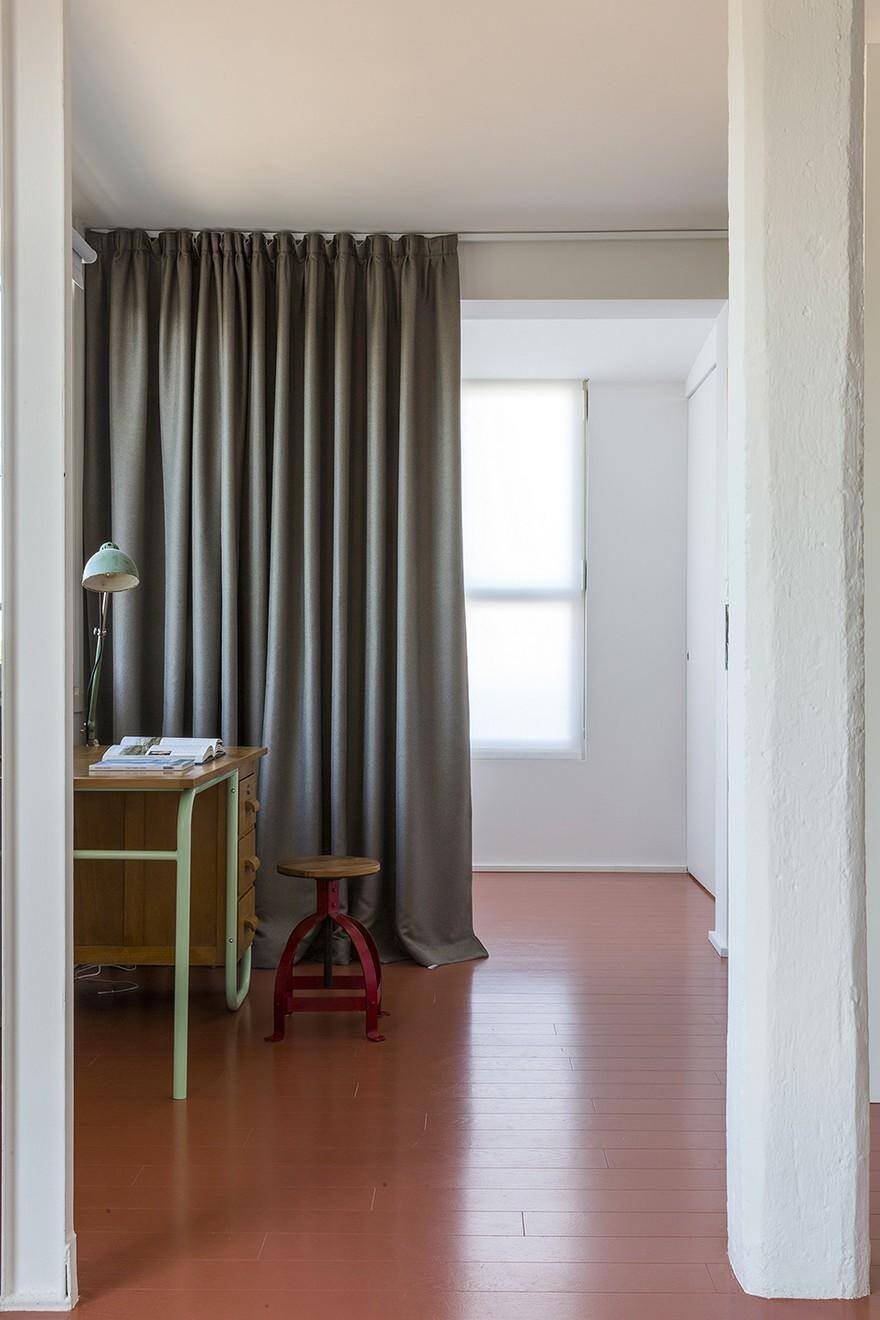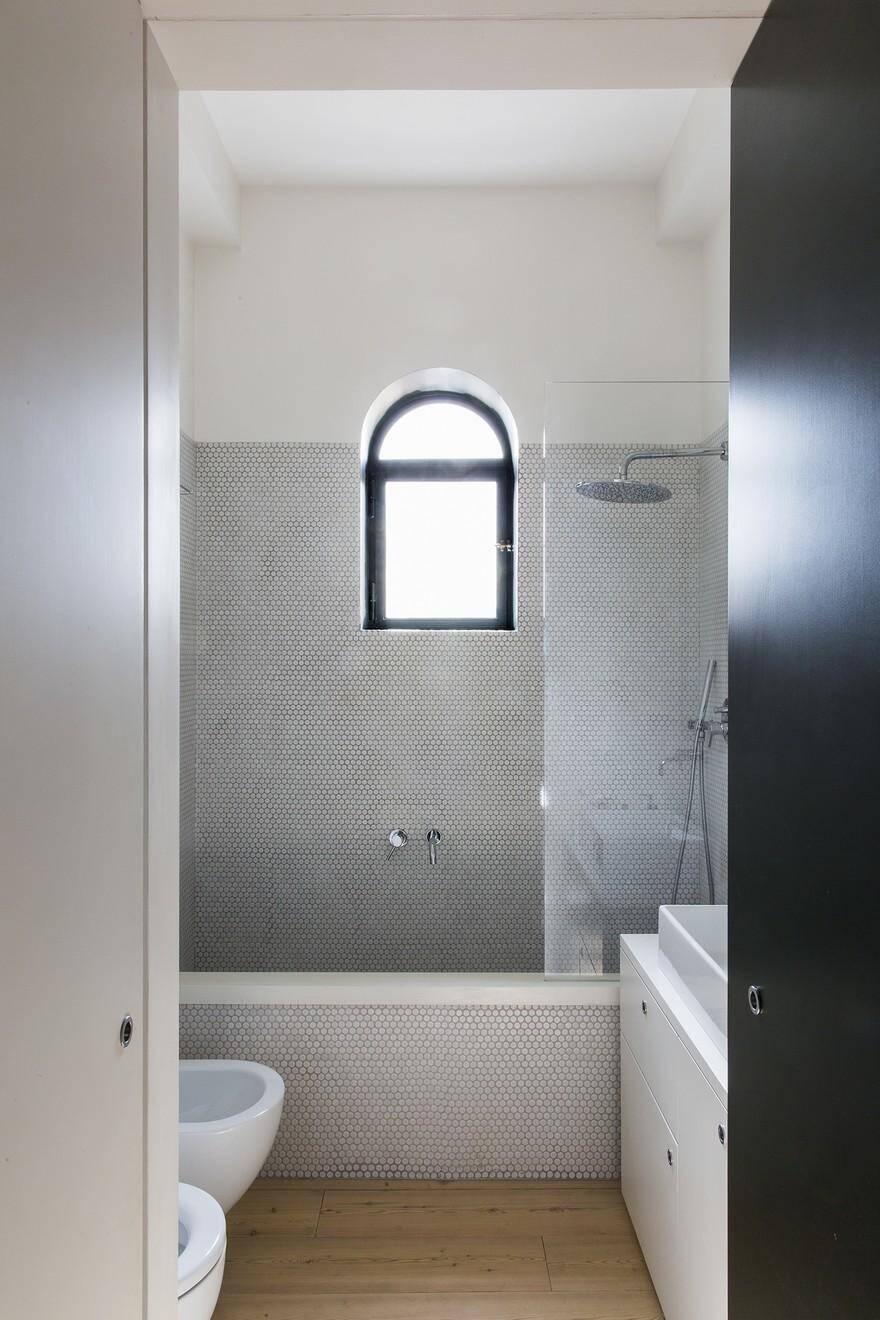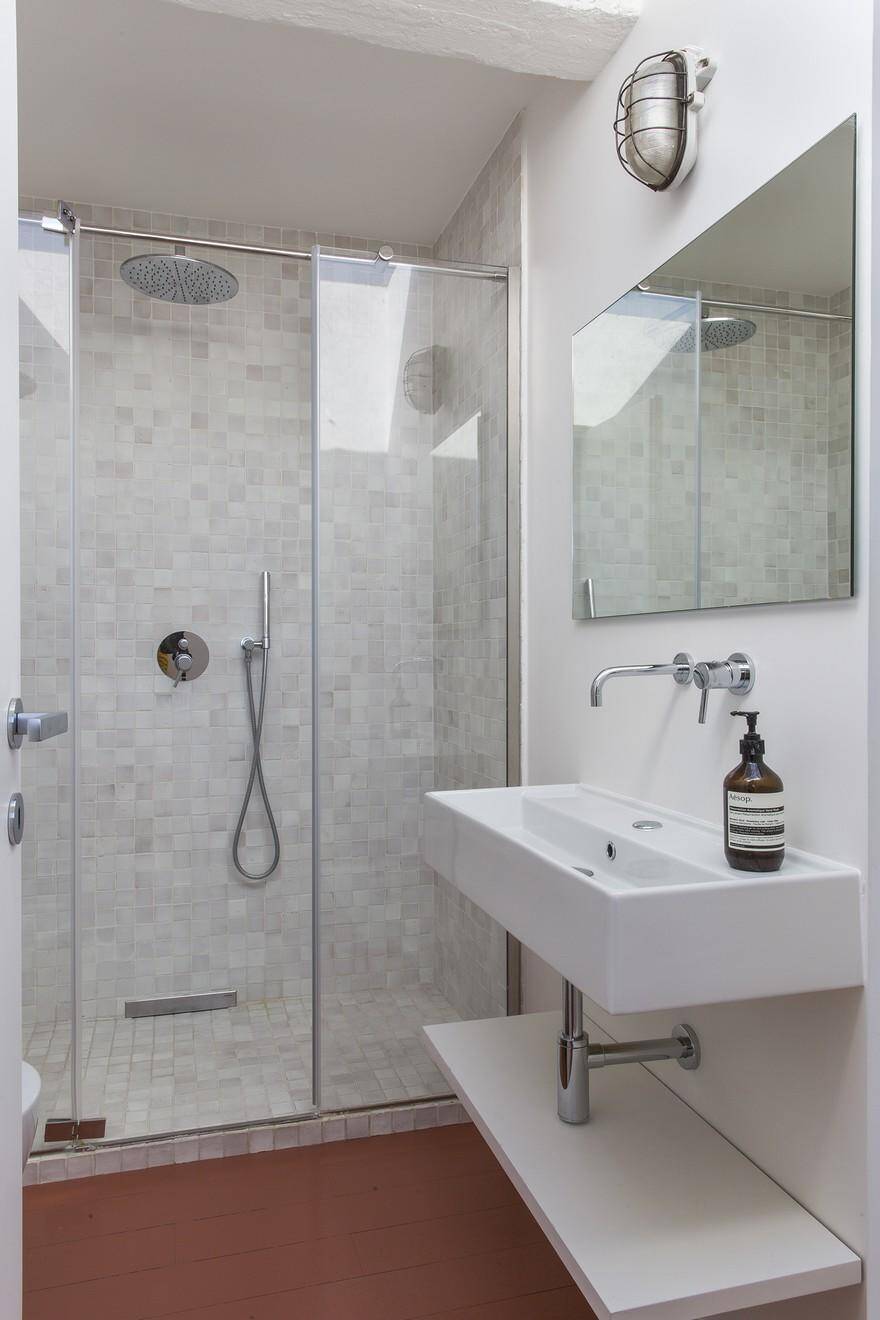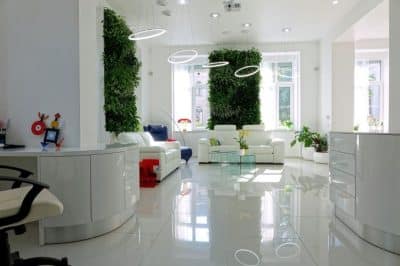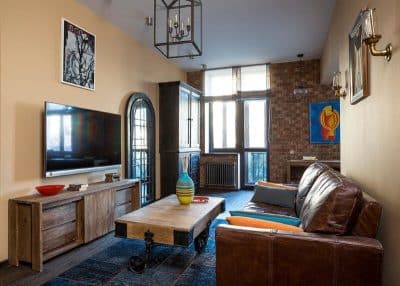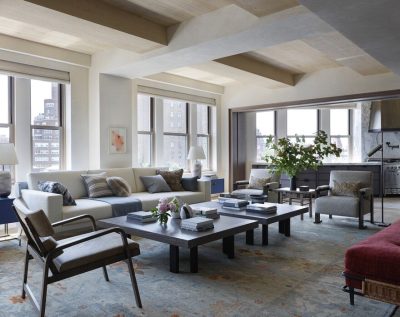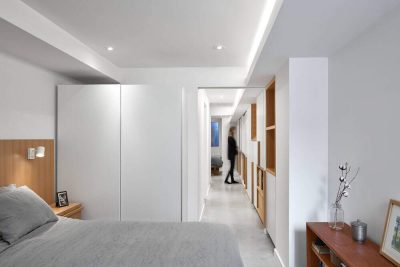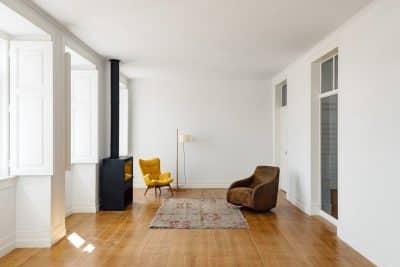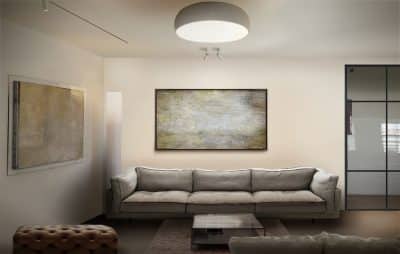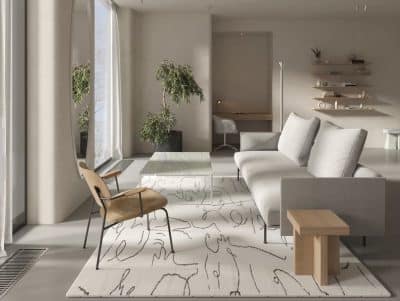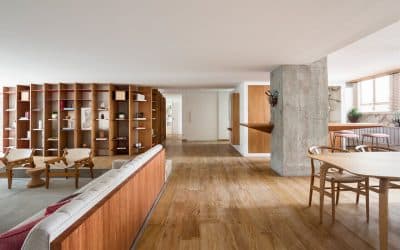Project: Arum House / Two-Storey Family Apartment
Architects: Studio Strato
Location: Rome, Italy
Year 2018
Photographer: Serena Eller Vainicher
A bright two-storey family apartment, open to the view on Villa Ada, green area of Rome. Studio Strato has designed the renovation of the house aiming to make external and internal spaces communicate and to enlarge the living environment as much as possible, projecting it into the green of a historic city park.
The house is on two levels on the top floor of a building in a historic district, and before the renovation presented a map with many small rooms connected by the hallway.
The project involved the demolition of internal separations in order to create more space for a large living area. Wide windows as large as the partitions allow to fully experience the landscape as if it were part of the house. The airy interiors pass from one room to another without interruption, in a fluid way of living.
The entrance leads to the large wide area with light larch parquet, which includes a large dining area with three solid wood tables to the right and a sitting area with a big black fireplace to the left. Here a glazed wall creates balance between an intimate space and the flow of the rooms, ensuring tranquility to the owners’ teenage daughter’s bedroom.
Together with the view on the park, the main character of the renovation is the large staircase that connects the master bedroom with the lower floor. It is a light structure, with a deliberately simple design, almost the archetype of the staircase.
The two bathrooms are full of fine details of refined comfort, such as the hand-made checkered tiles by Fornace Brioni’s (5×5 cm), which covers the floor and walls of the master bathroom and the dotted mosaic of the one on the ground floor, that belongs to the daughter’s bedroom.
At the base of the project there’s the idea, present throughout the apartment, to enrich the house with details with a graphic look, which the use of masonite as a covering both in the master bedroom and in the wider wall of the kitchen.
Some constructive elements are left rough with the aim of showing the trace of the work done, like the exposed beams and pillars, which tell the story of the house, of the process that it has gone through in being restored and its stratifications.

